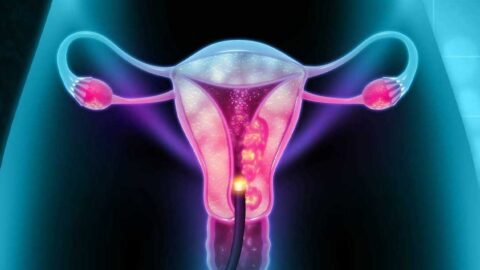All questions about Thyroid Cancer are answered by Oncologists at TCI.
 Dr. Bao Van Le – Head of the Oncology Department at TCI
Dr. Bao Van Le – Head of the Oncology Department at TCI
Q: What does the Tg level indicate in the cancer screening test?
A: Tg (Thyroglobulin) test is a tumor marker test used to measure the amount of Tg in the blood. The test is normally used after treatment for common thyroid cancers to evaluate the effectiveness of thyroid cancer treatment and monitor the recurrence of differentiated thyroid cancers.
A thyroglobulin level is not enough to diagnose thyroid tumor because other thyroid diseases that aren’t cancer also affect thyroglobulin levels. The normal range for Tg is 0.2 – 70 ng/mL in a healthy person. If the level is found to be staying high or increasing, there are still thyroid tissues in the body, and the patient might have differentiated thyroid cancers.
Q: What foods should I avoid if I have thyroid cancer?
A: If you are diagnosed with thyroid cancer, you need to follow a reasonable diet to support the treatment process. Here are the food groups that you should limit their intake:
- Non-fermented soy products: isoflavone in soybeans interferes with the absorption of iodine.
- Gluten-containing foods: can be found in wheat, barley, rye, and most processed foods.
- Fiber and sugar: Fiber prevents the absorption of treatment drugs. However, patients should maintain a reasonable fiber level as it plays an essential role in the digestive tract. An impaired thyroid gland makes it harder for the body to effectively convert sugar into energy, leading to weight gain and affecting the functioning of the thyroid gland. Therefore, patients should also limit foods containing a lot of sugar and sweeteners.
- Aspartame-containing foods: the low-calorie artificial sweetener can lower the activation of the immune system.
- Animal organs: lipoic acid in animal organs will decrease the effectiveness of the thyroid hormone and affect the cancer drugs.
Q: How can I find out if I have thyroid cancer?
A: There are many early warning signs from your body that you can acknowledge, such as
- a swollen lump on the neck
- difficulty swallowing or breathing
- a hoarse voice
- neck and throat pain
If you experience any of those signs, you should see a doctor. The tests used to diagnose thyroid cancer include:
- blood test
- biopsy
- Thyroid ultrasound to determine the size and type of the tumor
- CT scan or MRI to determine the location of the tumor and its ability to penetrate the surrounding tissues









